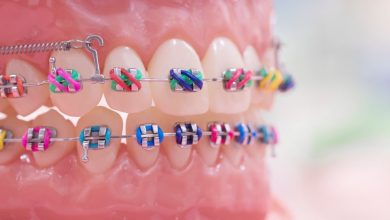Home Care Instructions After Removing Wisdom Teeth

The wisdom teeth are the third molars that usually erupt when a person reaches 17 to 25 years old. Some are lucky that these emerge without giving them any more than a few days of tender and painful gums. There are some on the other hand, who have to undergo surgery to remove these because the mouth is already too crowded to accommodate them.
These are some of the reasons why your doctor would recommend surgery to remove wisdom teeth:
- Wisdom teeth are impacted – There is a high chance that the molars do not come out normally because they are so far back in the mouth. They can get trapped in the gums or jawbones.
- Wisdom teeth come out at the wrong angle – This can cause them to press against other teeth.
- The mouth is not big enough – This can mean there is no more room for an extra set of molars.
- There are cavities or gum disease – This can happen because the molars are too far back and are difficult to clean.
If these last molars are not removed, they can cause several problems in the mouth like damage to other teeth, development of a cyst, and further gum diseases. It will help to find a reliable care provider for wisdom tooth extraction in Sarnia to safely resolve the problem.
Because of the complexity of removing these farthermost molars, an oral or maxillofacial surgeon will have to perform the surgery. They have the right training, space, and equipment to properly do this. Aside from skillfully carrying out the operation, they will also give you homecare instructions once the procedure is done.
Post-Operative Care Tips
- Manage the bleeding
It is normal to notice slight bleeding or redness in the saliva. Excessive bleeding is usually managed by placing a gauze pad over the surgical area and biting firmly for half an hour.
Biting on moistened tea bag is also one of the ways to control bleeding. The tannic acid of the tea bag helps aid in forming clots by contracting the blood vessels. If the problem persists, call the dental clinic in Brampton or Sarnia where you had the operation for advice.
- Manage the pain
Because it is a surgery, expect that there will be bouts of moderate pain. The doctor will give you pain reliever medicines like Tylenol or ibuprofen to be taken every three to four hours to manage the discomfort.
If you experience severe pain, let your dentist know. They can prescribe a more potent medicine for such cases.
- Relieve nausea

Photo by engin akyurt on Unsplash
Nausea or vomiting may happen. It is important to not take anything by mouth for at least an hour post-surgery. Sip slowly on ginger ale or tea and wait for the feeling to subside before taking your medicine.
- Manage swelling or discolouration
You may also experience swelling around the mouth, cheeks, eyes, and sides of your face. This is not a cause for alarm because it will disappear a few days after the surgery. To help, apply ice to the area. After 36 hours, switch to applying moist heat. You will notice black, blue, green, or yellow discolouration because of the blood spreading under the tissue.
- Eat the right food
It is important to get at least 5 to 6 glasses of liquids. Avoid using straws because the sucking motion can dislodge the blood clot around the surgical site. Also, avoid consuming hard and chewy food. Focus on getting calorie and protein-rich soft foods. Eat well so your body will recover sooner.
- Practise oral hygiene
You can still brush your teeth on the night of your surgery but make sure to rinse gently and be careful when working around the site. A day after, begin rinsing at least 5 to 6 times. Keep your mouth clean with salt water rinses.
- Care for the stitches and dry sockets
Wisdom teeth stitches can help minimize bleeding and promote healing. The stitches may become dislodged but you can simply discard them. They will be removed a week after surgery.
If you experience blood getting dislodged prematurely from the dry socket, call the doctor immediately. It can cause pain at the surgical site and even in the ear.
Days and even weeks after the surgery, you will need to submit for a dental checkup in the Oshawa or Sarnia clinic you have gone surgery at. The doctor will make sure that the procedure went well and that your healing is on track.





